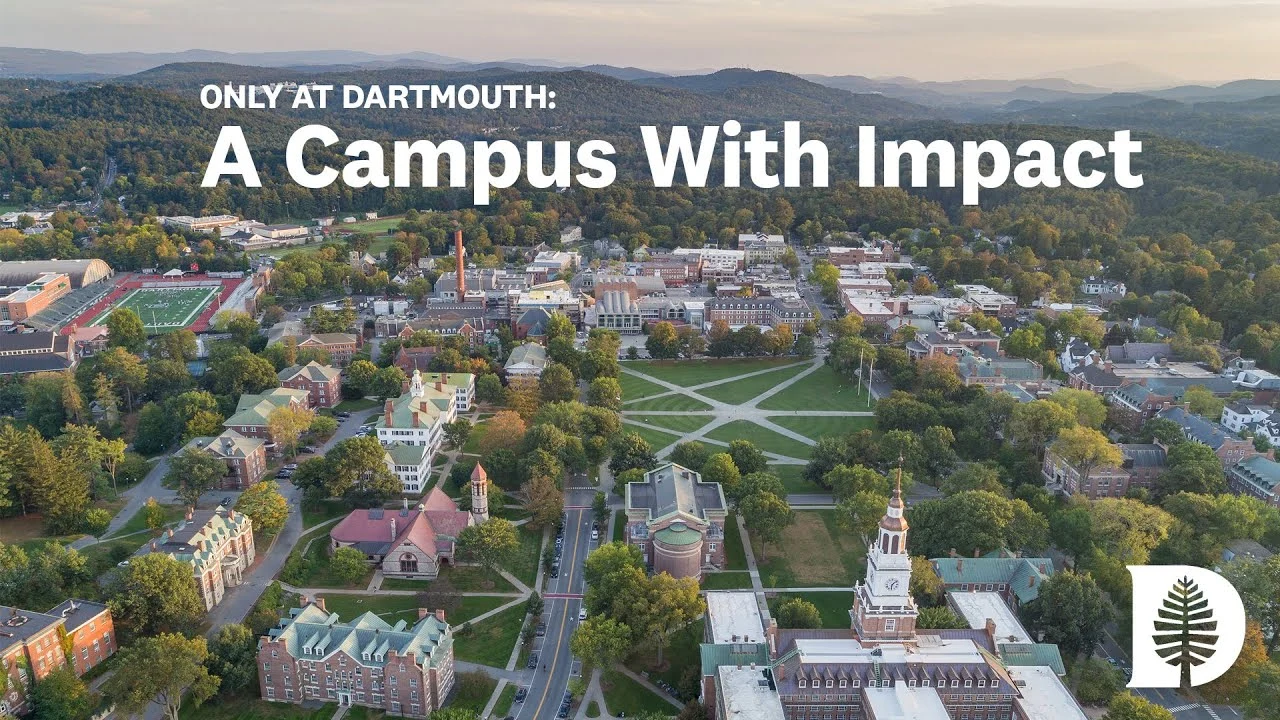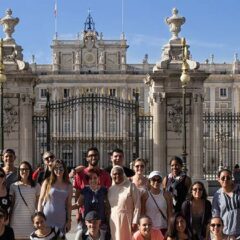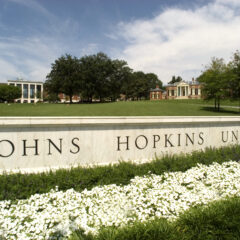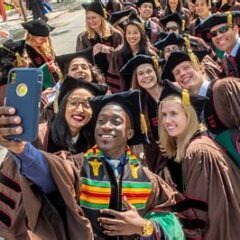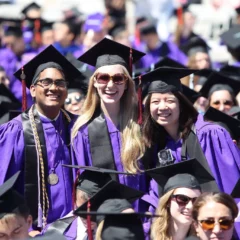Dartmouth College – History: The college was officially founded in 1769 when Sir George Wentworth of the State of New Hampshire received approval from England's King George III for a charter. The college was
founded the year after Wheelock built a solitary log house in the wilderness of New Hampshire. It bears the name of William Legge, 2nd Earl of Dartmouth, who served as the school's trustee for the English funds.
Among the most cutting-edge tiny liberal arts universities in the country is Dartmouth. English, chemistry, geology, history, mathematics, and linguistics are among its academic specialties. Asian studies, black experiments, the ecosystem, Native Americans, and urban issues have curricula. Small courses, a variety of workshops, and close student engagement are the school's main strengths for undergraduate education. However, Dartmouth is also renowned for its top business, engineering, and medicine caliber schools. The total number of students is around 5,200.
Academics:
Dartmouth College provides excellent possibilities for students to pursue a wide range of academic interests, including immersive language instruction that includes training and study
abroad. As frequently as they take classes in technology, business, and the sciences, students also take liberal humanities and social sciences courses.
The following are some bachelor’s degrees:
- The Earth Sciences
- Music
- Studies of the environment
- History
- Studies of Native Americans
- Biochemical Physics
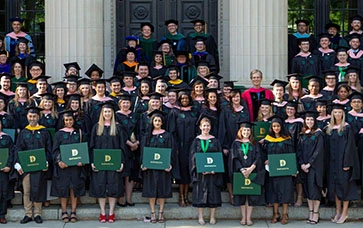
Dartmouth College offers a wide range of graduate degrees to choose from for its students. The top medical students aim for an MD-Ph.D., and future chemists can pursue a master's or doctoral
degree.
Computer science students can follow in the footsteps of titans, two of whom created the BASIC programming language at Dartmouth College in May 1964.
Dartmouth College offers a wide range of graduate degrees to choose from for its students. The top medical students aim for an MD-Ph.D., and future chemists can pursue a master's or doctoral
degree.
Computer science students can follow in the footsteps of titans, two of whom created the BASIC programming language at Dartmouth College in May 1964.
At the college, there are numerous subfields with various degree concentrations.
Students pursuing a Bachelor's degree in Ancient History, for instance, can select from one of the following options:
- Ancient Archaeology
- Ancient Studies
- Classical Literature and Languages
- Early History
Requirement for all Dartmouth College degrees, for the Early Degree in history could be a Hood Museum internship, an honors project or finishing the Greek and Roman academic studies. The Greek and Roman curricula may also involve one or even more semesters of study abroad in Greece or Italy.

Student Life:
The college is dedicated to creating exceptional student experiences and opportunities that support a Dartmouth education.
All prospective student's opportunities to enhance their education through involvement, intense service, interactive experiences, training in social enterprise, and more avant-garde initiatives are welcome at the Dartmouth Department of Social Impact.
Each year, it sponsors over 180 student organizations, eight student governing organizations, and numerous events like the Bonfire, Winter Carnival, and Family Weekends.
Extracurricular:
At Dartmouth, Greek life is legendary. It is well known for inspiring the timeless 1978 film Animal House. It significantly impacts today's campus culture, where undergraduate involvement in sororities and fraternities is approximately 70%.
Greek life serves as the college’s social center and exemplifies the work hard, play harder ; mentality that dominates campus life.
The Dartmouth Outing Club (DOC), founded in 1909, is the oldest and biggest outing club in the country. Its membership stands at nearly a quarter of the Bachelor's student body.
DOC members can access the club’s rental equipment, trips, cabins, classes, and trips. As a result of the DOC’s size, several smaller clubs are under its umbrella.
The school-owned ski resort, Dartmouth Ski Way, is one of the attractions accessible to Dartmouth's active student body. The school operates frequent transport from and to the skislope, which is only 15 minutes away, and offers subsidized passes to students.
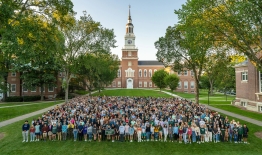
Traditions:
The annual snowball fight at Dartmouth, which takes place around the first snow of winter term, is one of the school's longest-running (and most enjoyable) customs.
A mystery email invitation to a late snow fight sent by a well-known alumnus (Dr. Seuss) to another Dartmouth alumnus, Robert Frost, sets off the event.
Another of Dartmouth’s most renowned traditions, Winter Carnival, is celebrated during northern New England's bleak, chilly winters. The Winter Carnival, which was first organized in 1911, has a Polar Bear Swim and Human Dogsled Races, among other activities. Each year’s theme is a different one.
First-year excursions are crucial for trying to adjust incoming students to Dartmouth. The pre- orientation program is administered by students and takes first-year undergraduates on a five-day outdoor adventure (suited for all skill backgrounds) to encourage interaction between new students and upper-level students. More than 90% of new students participate in the program, which is incredibly popular.
Tuition and Financial Aid:
Dartmouth College bases its tuition on the calendar year and requires payment at least six weeks before the start of each semester. The annual cost of tuition is $53,496. The annual cost of room and board is $15,756. Incoming first-year students incur the additional expense of $418 for orientation.
Works typically cost $1,000 per year. However, students may be able to find used copies of useful books for less money. Having health insurance is also a requirement for admission to Dartmouth College.
Dartmouth College offers coverage for $3,073 a year if they don't currently have insurance. All students must also have computers that adhere to the college’s strict requirements.
If a kid doesnt have a laptop, they are provided for $1,450. Various travel expenses and other fees are around $2,000 in total. The whole expense is roughly $75,000 each year.
At Dartmouth College, all candidates with personal needs are given financial aid. Scholarship money, grants, loans, or a mix of these can be used as financial assistance. To start the financial aid application process, students should get a copy of the Free Application for Student Aid or FAFSA.
This form, which contains all financial data regarding students and families, will be used by the college and the authorities to determine each student's eligibility. Naturally, students can also apply for private grants and scholarships, some of which are criteria.
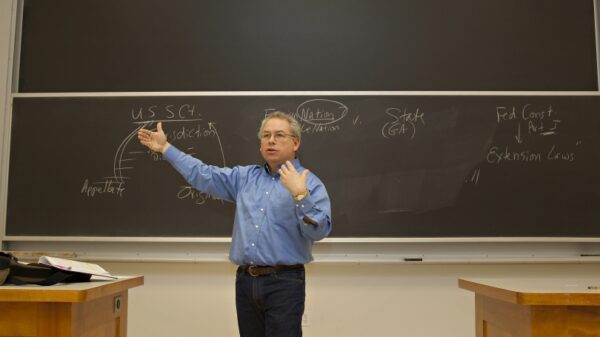
Why Dartmouth College?
Dartmouth is renowned for its demanding academics, Ivy League standing, and intimate class sizes, on the one hand. In contrast, the college is well known for its rural location, outdoorsy atmosphere, and Greek life (which served as the idea for the film Animal House).
Dartmouth typically ranks among the top 20 universities in the country, and this is reflected in the strict
admissions process. The college have strong academics and gives preference to candidates with high GPAs who rank at the top of their class or quite near it.
Supplemental essays have recently been added to Dartmouth's admission process; while important, they cannot replace a strong academic record. From its location in northern New England to the fact that it has a ski hill on campus to its outstanding alumni network.
By KSHVID TEAM
#highereducation #university #college #studyabroad #DarmouthCollege #courses #undergrad #studentlife #goodcollege #academics
